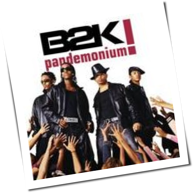

The critical acclaim from her debut mixtape and the hard work of her and her manager, Taz Askew of Art Club, led Aiko to a deal with Dion “No I.D.” Wilson via ARTium/Def Jam. What she came up with in 2011, with Sailing Souls, was an album ahead of its time-prefiguring the music industry’s grappling with the direction of R&B music, whether to call it alt-R&B or “progressive,” as defined by the new naming of the Best Urban Contemporary Album Grammy. After giving birth to her daughter in 2008, Aiko began to steer away from her early teeny-bop days and put pen to paper on her very real experiences of coping with life. It’s not only the signature sweet-and-sultry sound of Aiko that makes her one of the most prolific artists of the modern era. Ethereal sounds can be heard throughout the album, and Aiko’s heavenly vocals deliver stories of love, loss, reflection and introspection. She utilized alchemy crystal bowls to produce vibrations elevating listeners to a higher plane beyond their trials and tribulations. It hurts, but it’s a familiar pain as she sings, “I meet ‘em everyday.” Posts from her Tumblr page brought her to fans who were finding their own ways to express themselves outside the confines of filtered and pristine editorial and social media.Īiko’s latest album, Chilombo, is a personal project for the singer, who realized that making music was not only healing for her but also for the world. Records like “Stranger” spoke to the ubiquitous cynical nature of experiencing heartbreak across different relationships. At this point, her debut mixtape, Sailing Souls, was the soundtrack to my own coming-of-age story as a girl who made it out of Memphis and was slowly making her way through life. I was in touch with her agent, CAA’s Caroline Yim (who remains in that role), and was looking forward to her making a debut on our campus. It was the quintessential bright melodies mixed with the sassy lyrics of a young man trying to run game on a young woman that got me.įast forward 10 years later, and I was begging my assistant dean to allow me to bring her to Stanford University’s campus for an annual concert festival. She had a song, “Dog,” that I played incessantly as a pre-teen. I first heard of Jhené Aiko in 2002 on B2K’s Pandemonium album. “We’ve met, right?” It was a question asked to me at a party in Malibu by an artist I hadn’t become acquainted with personally but musically knew since I was 11 years old. In this essay, writer Ashley Lyle explores the depth and richness of an ever-evolving artist and songwriter.


 0 kommentar(er)
0 kommentar(er)
